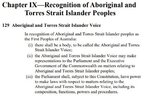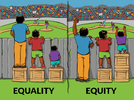- Sep 10, 2010
- 28,939
- 42,097
- AFL Club
- West Coast
- Other Teams
- Toronto Maple Leafs
True, but you could theoretically legislate anything. Like compulsory military field medic training for all students yr 3 and above. Or that citizens must complete two years national service between the ages of 18 and 29.However, it can still be legislated that the chambers must abide by the voice recomendarion in cases of <to be determined>.
See ... quite scary right?
We shouldn't have representative parliament at all, it's clearly a slippery slope.






